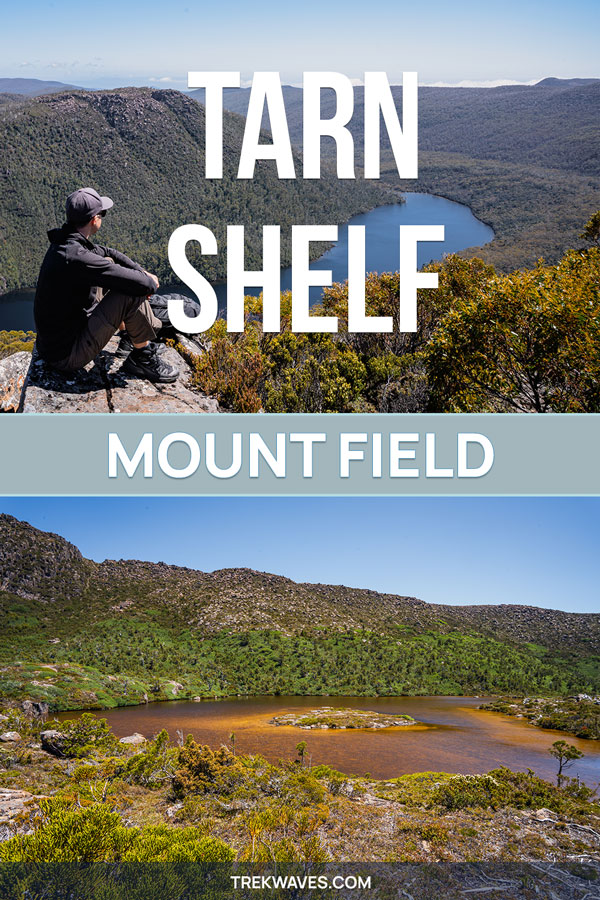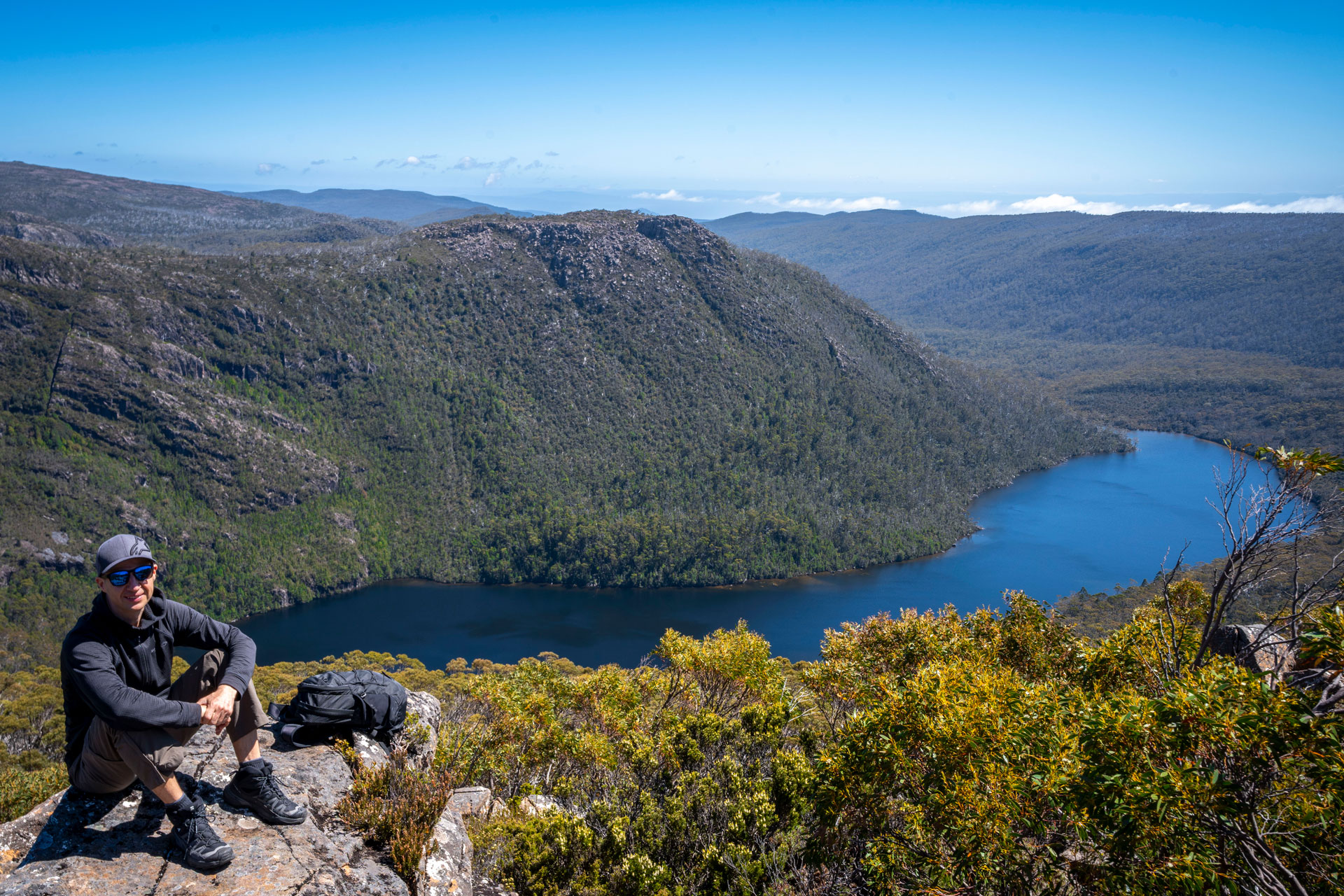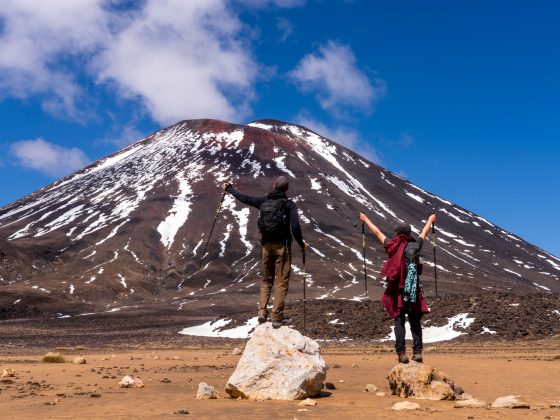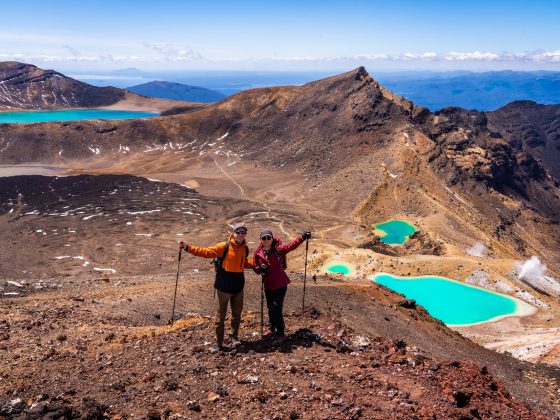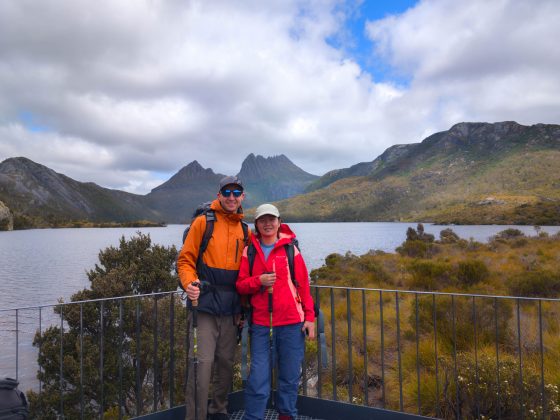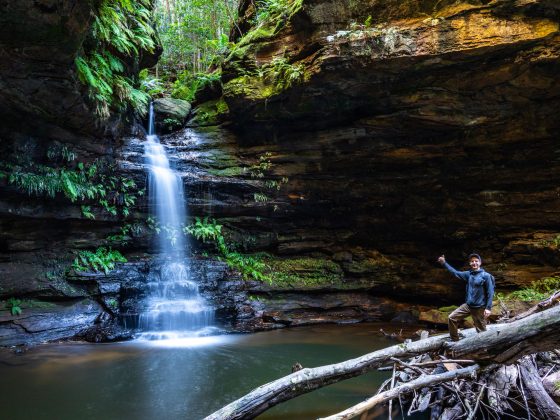If there’s one hike in Mount Field National Park that I think is an absolute must-do, it’s the Tarn Shelf Circuit.
This trail is a paradise for bushwalkers, especially in autumn, thanks to Tasmania’s iconic Fagus, the only native deciduous tree that transforms the landscape.
But no matter the season, the hike delivers breathtaking alpine scenery, a string of glacial tarns, and a deep sense of history woven into the land.
Discover what makes this hike truly special with a complete guide to ensure you don’t miss a thing.
Tarn Shelf Circuit Overview
The Rodway Range towers over the entire Tarn Shelf, named after the legendary botanist and mountaineer Leonard Rodway, who played a key role in preserving this area as a national park.
The seven major lakes and tarns along the route—Robert, Mackenzie, Johnston, James, Backhouse, Walker, and Lake Newdegate—owe their names to early explorers and conservationists who helped shape Tasmania’s wilderness legacy.
This circuit is more than just a hike—it’s a journey through Tasmania’s glacial past, rich ecology, and untouched beauty.
Whether you’re here for the vibrant alpine flora, the historic huts, or simply to soak in the stunning views, the Tarn Shelf Circuit is an unforgettable adventure.
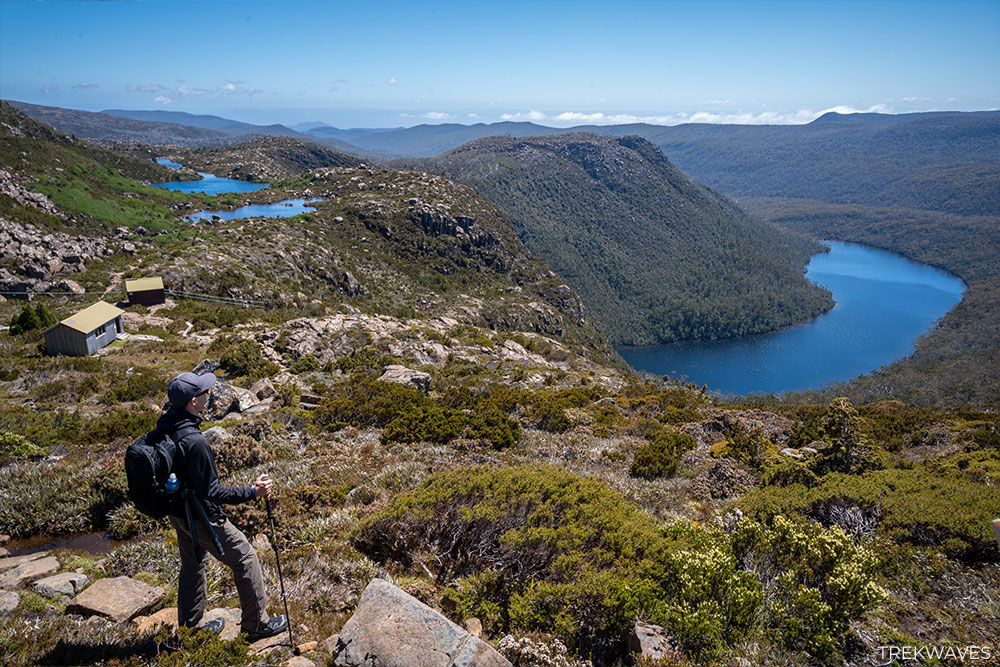
How to Get to the Tarn Shelf Circuit Trailhead
The drive from Hobart to the trailhead at Lake Dobson takes about 1 hour and 40 minutes (88 km) along the Brooker Highway and Gordon River Road (B61).
On the way, you can stop at the Mount Field Visitor Centre to gather information, maps, and permits.
From there, it’s a 30-minute drive (14.8 km) on a gravel road in good condition, easily passable for any 2WD vehicle.
At the trailhead, you’ll also find a detailed map of all the area’s hikes, perfect for taking a photo before setting out.
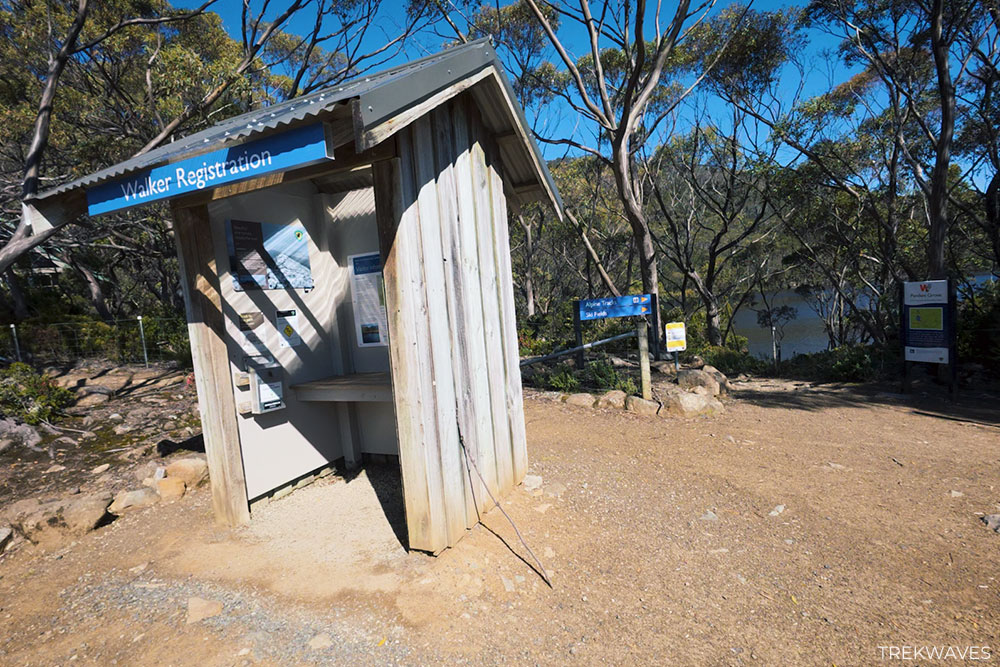
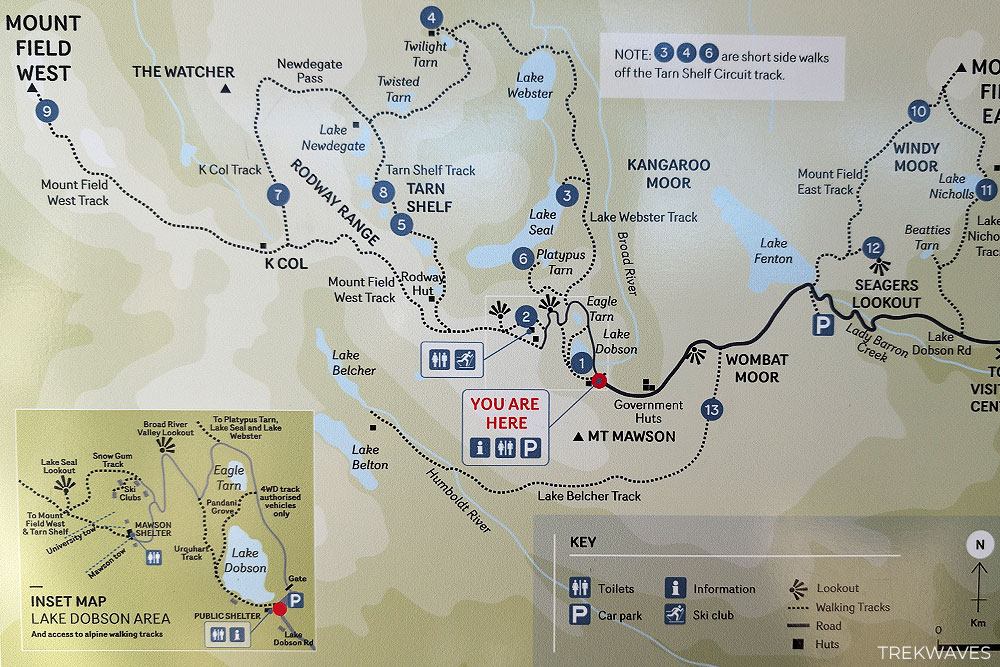
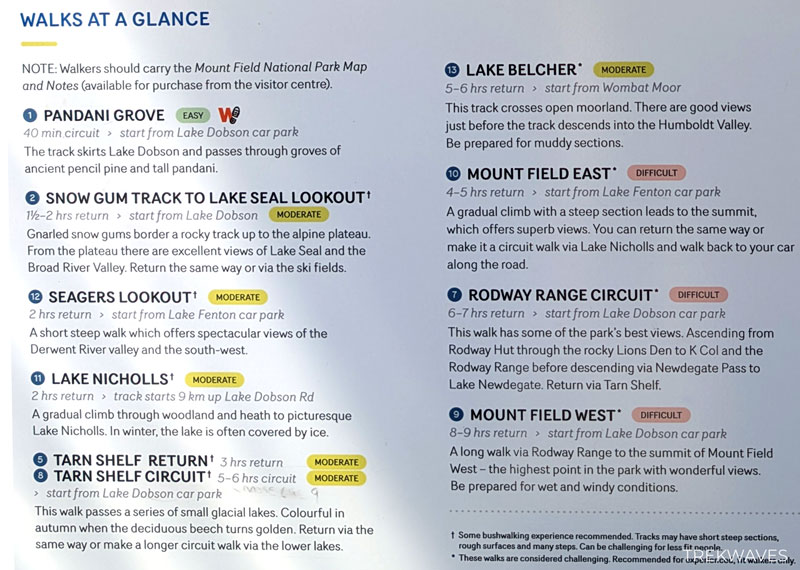
Tarn Shelf Circuit Trail Details
Here’s a quick breakdown of everything you need to know about this hike:
- Distance: 16.3 km loop
- Elevation Gain: 721m
- Duration: +6 hours
- Difficulty: Moderate / Hard
- Starting Point: Lake Dobson Car Park
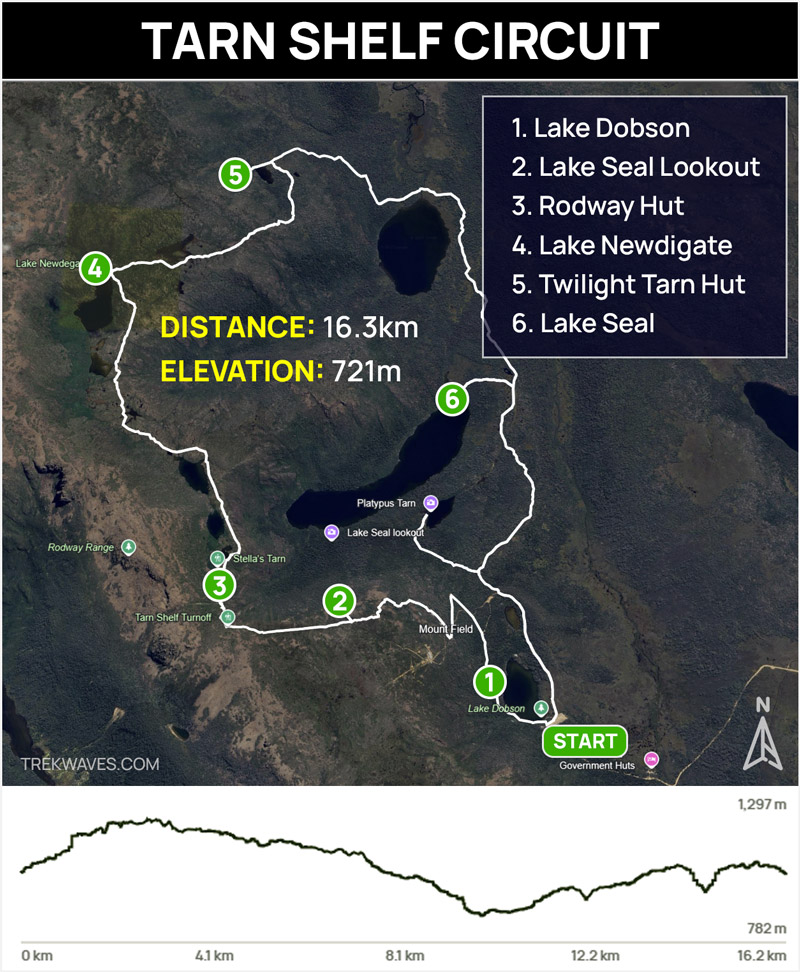
Lake Dobson and Pandani Grove
The hike begins at Lake Dobson, a tranquil alpine lake surrounded by ancient pencil pines—some of the oldest living trees in Tasmania.
This pristine setting offers a perfect start, setting the tone for the adventure ahead.
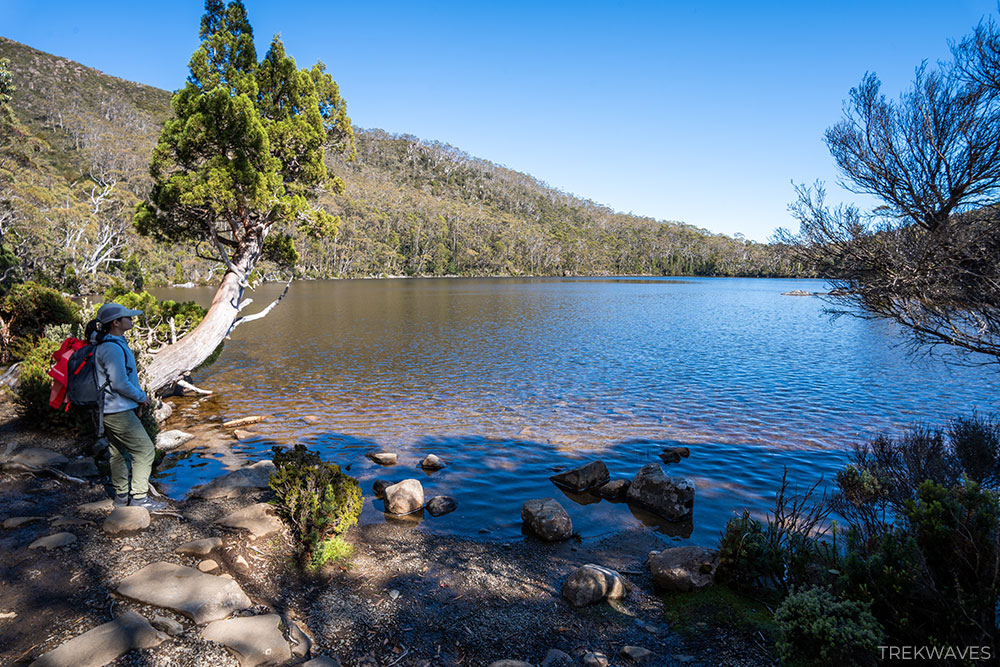
Before setting off on the main trail, you’ll briefly follow the Pandani Grove Nature Walk—one of Tasmania’s 60 Great Short Walks.
This gentle introduction showcases the unique pandani (Richea pandanifolia), the world’s tallest heath plant, surrounded by lush undergrowth that gives the area an almost otherworldly feel.
Instead of completing the full loop around the lake, you’ll soon reach a junction where the route diverts onto the Urquhart Track to continue the ascent.
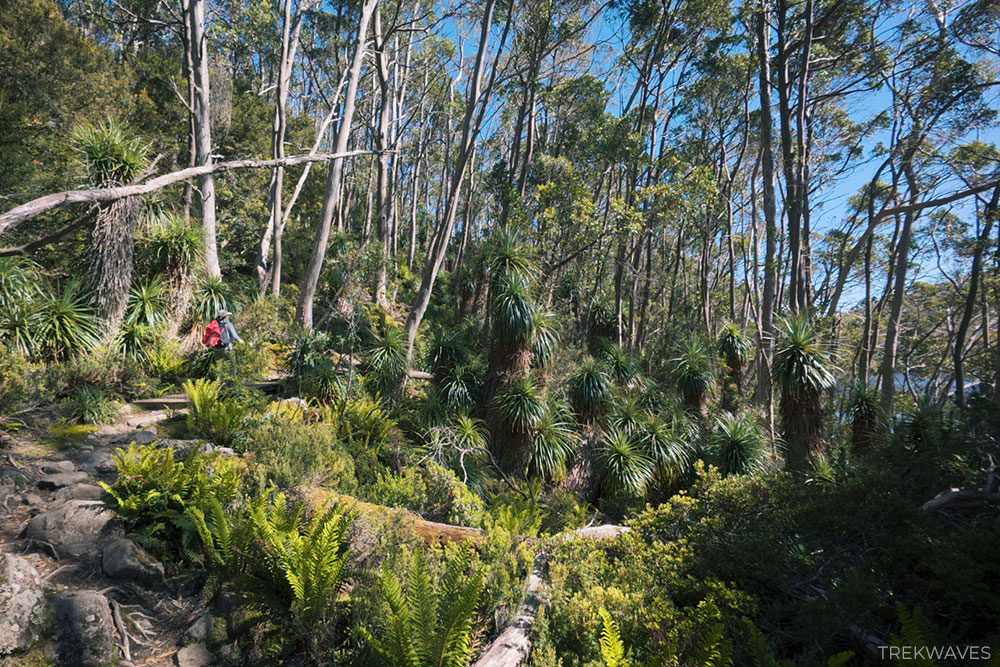
Urquhart Track & Snow Gum Track
Leaving Pandani Grove behind, the Urquhart Track begins the first real ascent of the hike. This section winds through a mix of snow gums, mossy undergrowth, and subalpine vegetation, offering a glimpse into the park’s remarkable biodiversity.
As the trail progresses, a steep fire road climb along the second part of Urquhart Track presents a real leg-burner.
Once on the Snow Gum Track, the environment shifts again, with dwarf myrtle, lichen-covered boulders, and sweeping alpine meadows creating an open, high-country feel.
Snow gums are a defining feature of Tasmania’s highlands, their twisted, gnarled branches shaped by harsh alpine conditions.
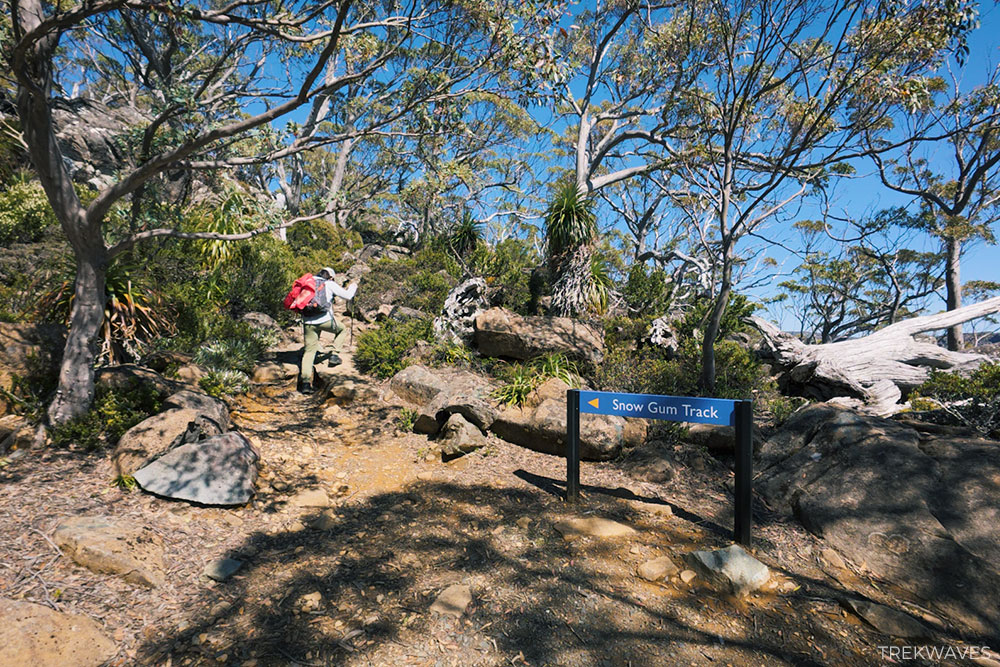
Lake Seal Lookout
A well-marked detour leads to the Lake Seal Lookout, one of the most breathtaking vantage points on the hike.
Perched high above the landscape, this viewpoint showcases Lake Seal, a deep glacial lake cradled by steep, rugged cliffs.
This is also a great place to pause and take in the sheer scale of the glacially carved landscape before continuing onto the Tarn Shelf Track.
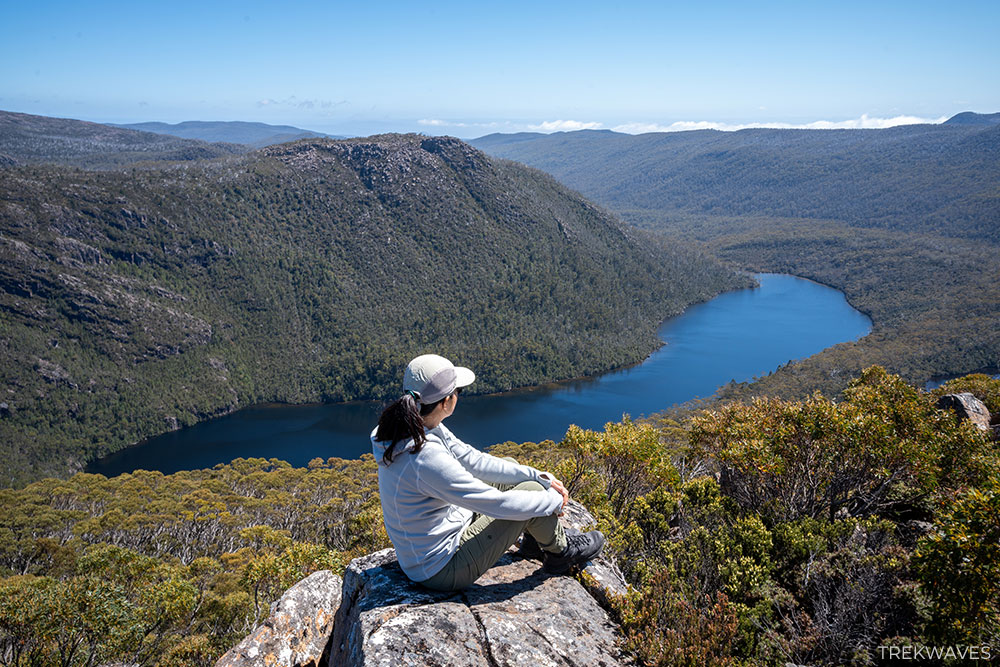
Rodway Hut & Tarn Shelf Track
The Tarn Shelf Track is where this hike truly comes to life. Stretching along a series of glacial tarns, this section offers some of the most picturesque alpine scenery in Tasmania.
The Rodway Range, towering above the trail, frames the tarns beautifully, while the still, reflective waters create a dreamlike atmosphere.
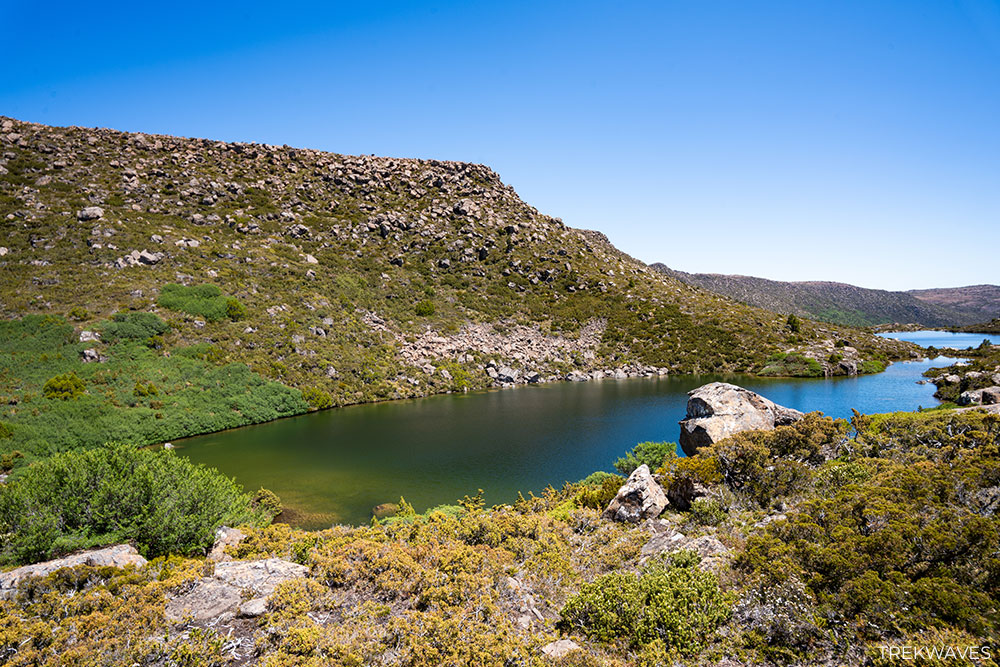
Some of the most notable tarns include:
- Robert Tarn – first one along the Tarn Shelf Track, not too far from Rodway Hut.
- MacKenzie Tarn – a peaceful, hidden gem nestled among rocky outcrops.
- Johnston Tarn – featuring unique rock formations and vibrant alpine vegetation.
- Backhouse Tarn – it was my personal favourite with a small island in the middle of it.
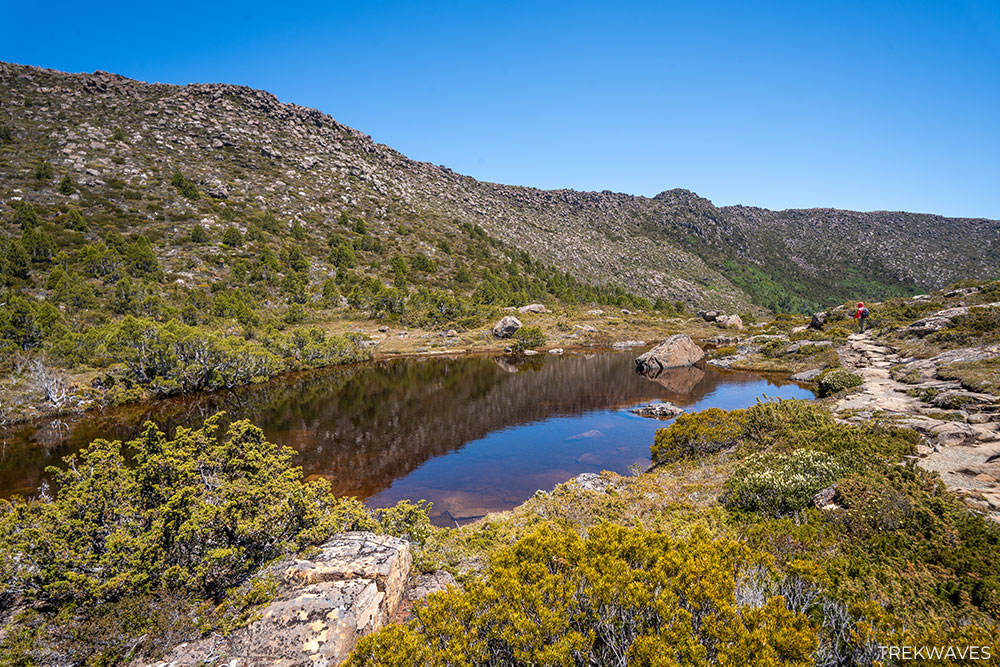
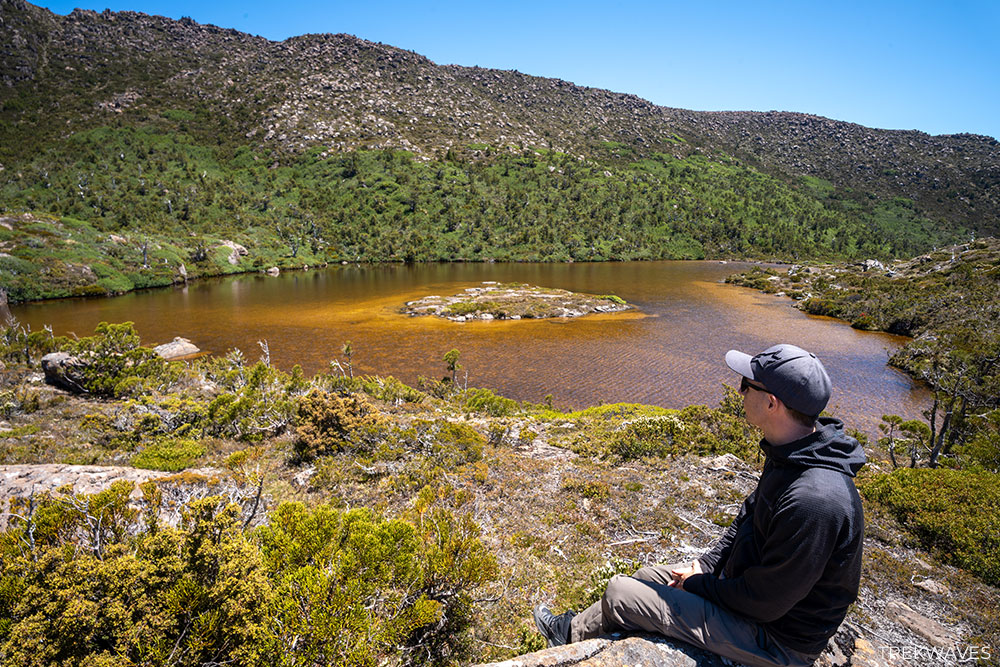
A short distance from the track lies Rodway Hut, a historic structure providing emergency shelter in unpredictable mountain weather.
Though it’s not for overnight stays, it offers a great spot to rest and soak in the beauty of the Tarn Shelf wilderness.
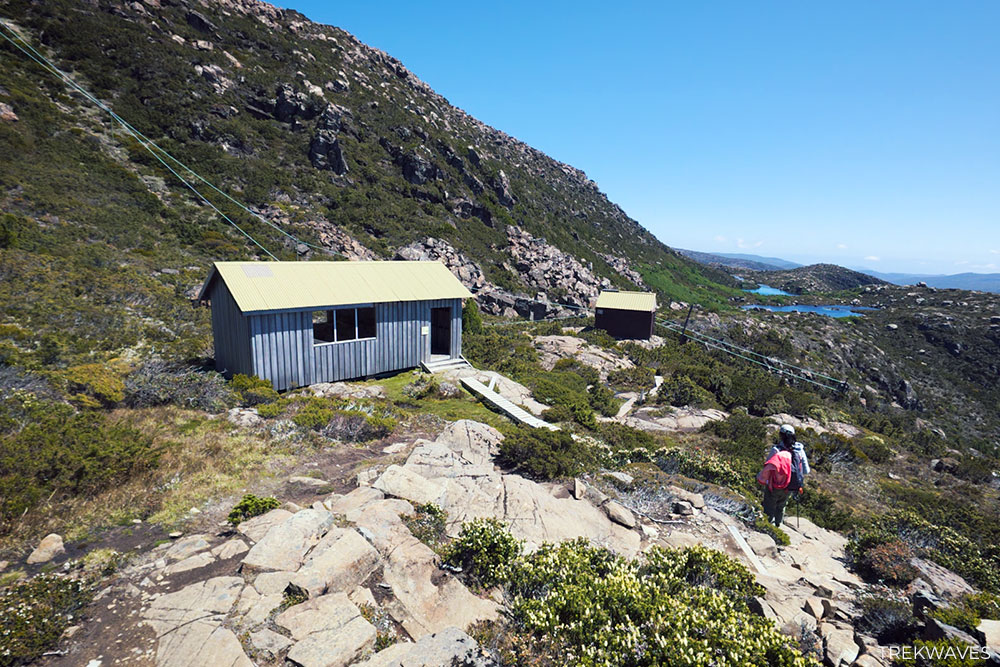
Lake Newdegate Track: Twisted & Twilight Tarn
As you continue along the trail, you’ll arrive at Lake Newdegate, home to the historic Newdegate Hut.
This is an ideal spot for a break, with a spacious wooden platform by the lake offering a perfect place to sit, enjoy lunch, and soak in the alpine views.
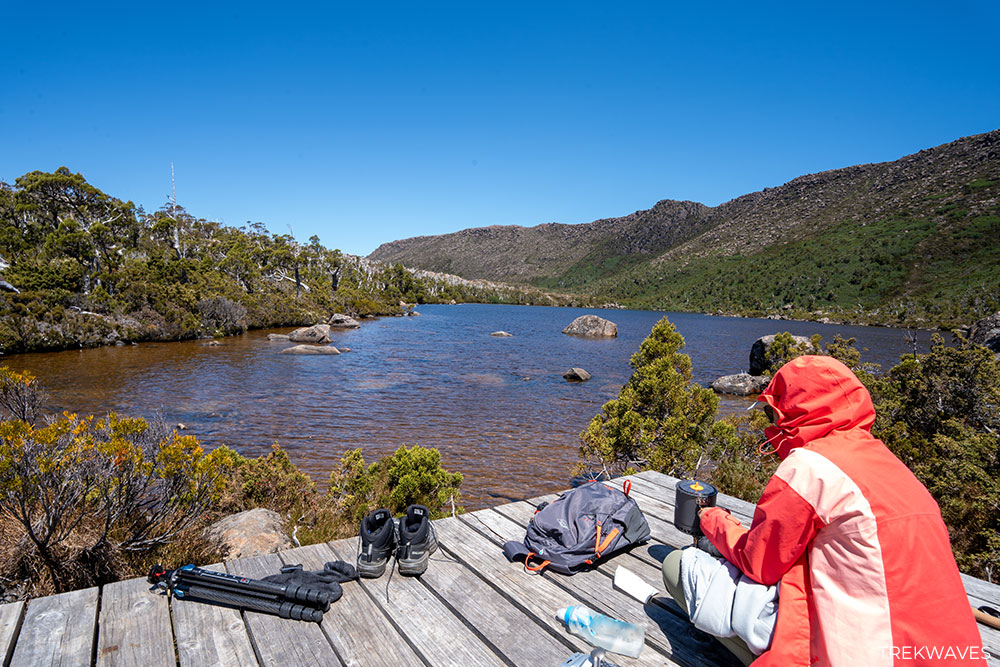
From here, the route follows the Newdegate Track, passing Twisted Tarn and Twilight Tarn — both stunning examples of the glacially carved lakes that define this region.
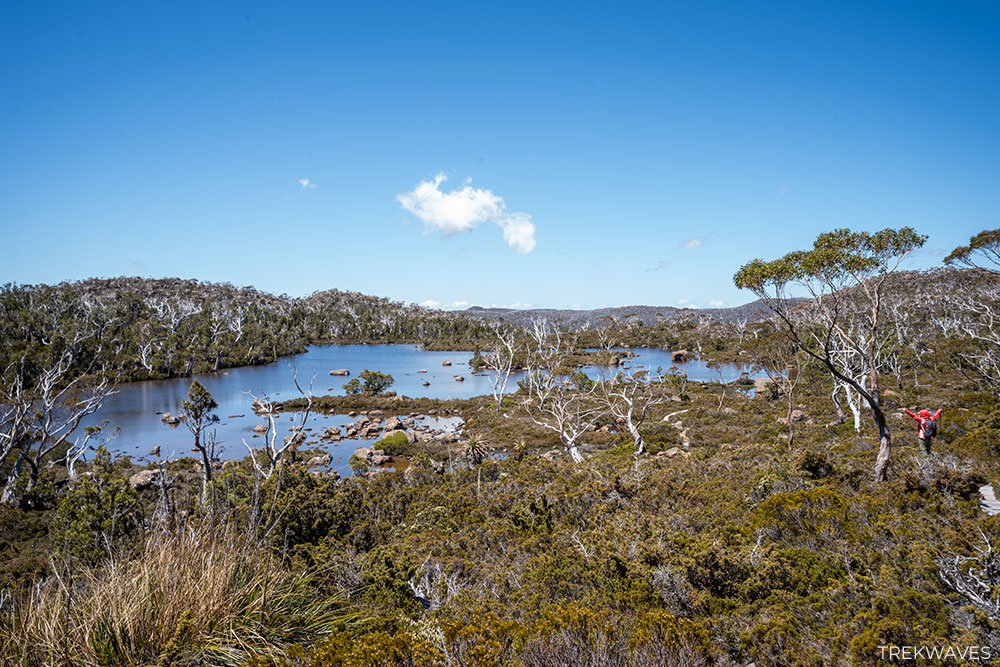
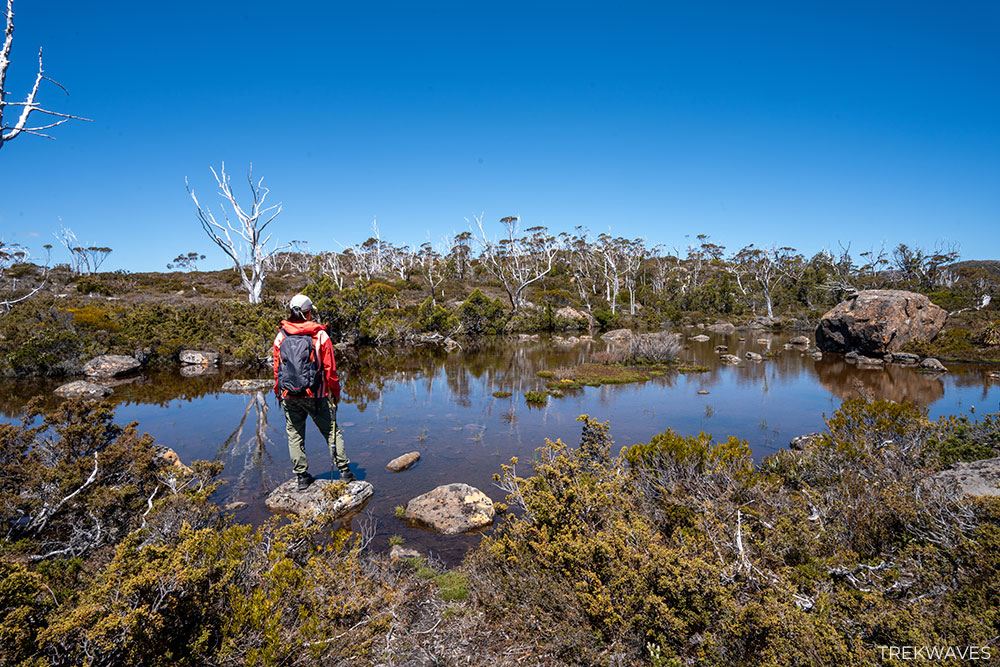
Twilight Tarn is especially intriguing, as it’s home to Twilight Tarn Hut, a rustic structure built in 1927.
The hut preserves a slice of history, with an on-site museum displaying early skiing and bushwalking equipment, remnants of Tasmania’s pioneering outdoor culture.
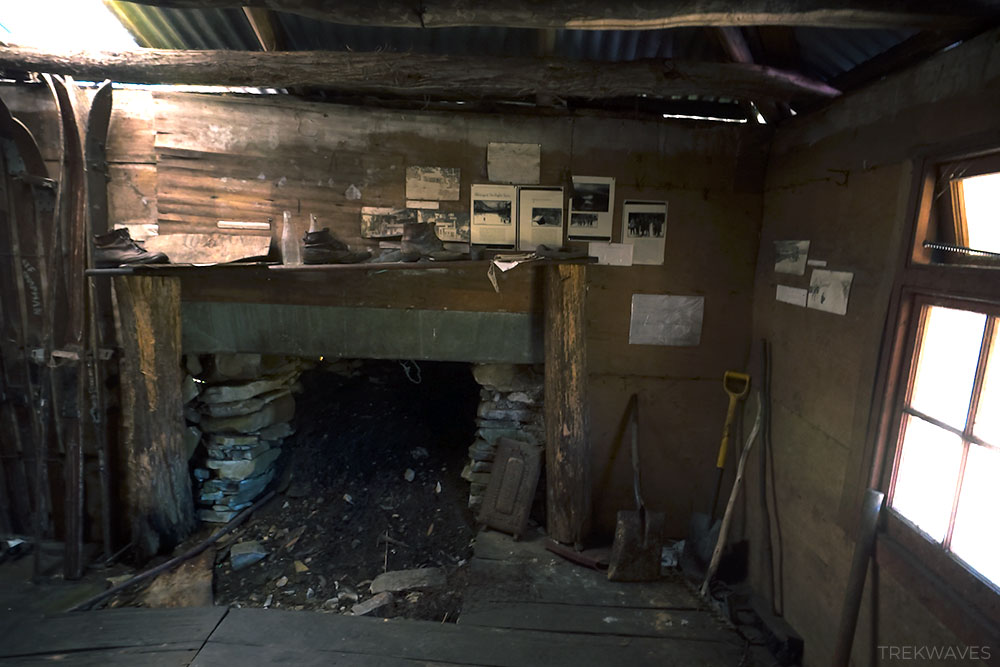
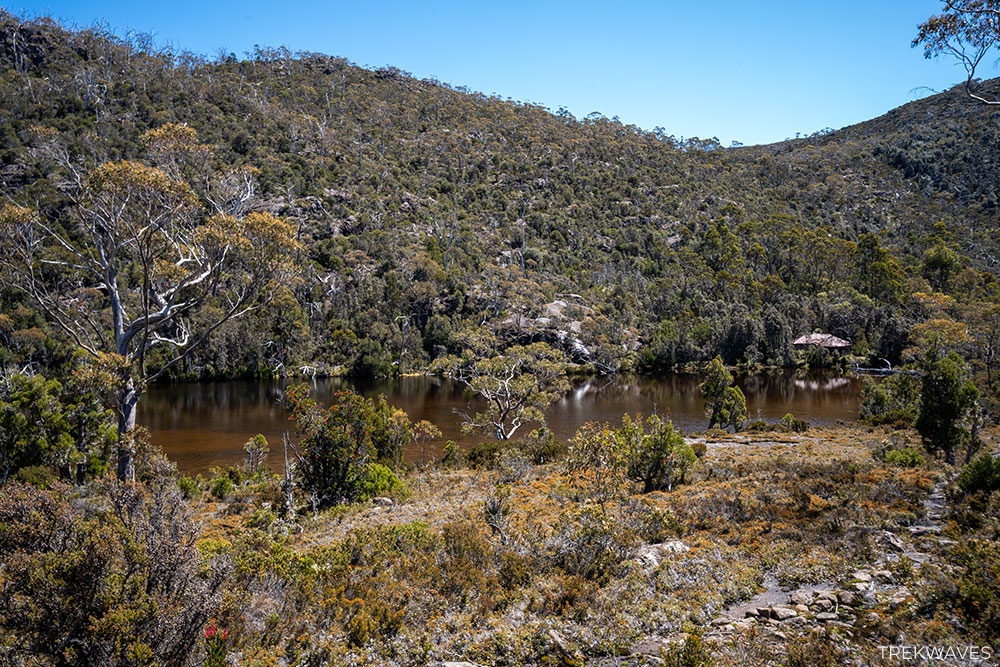
This part of the hike feels like stepping into another world. The raw beauty of the tarns, the resilience of the alpine vegetation, and the sheer remoteness of the landscape make this an unforgettable section of the circuit.
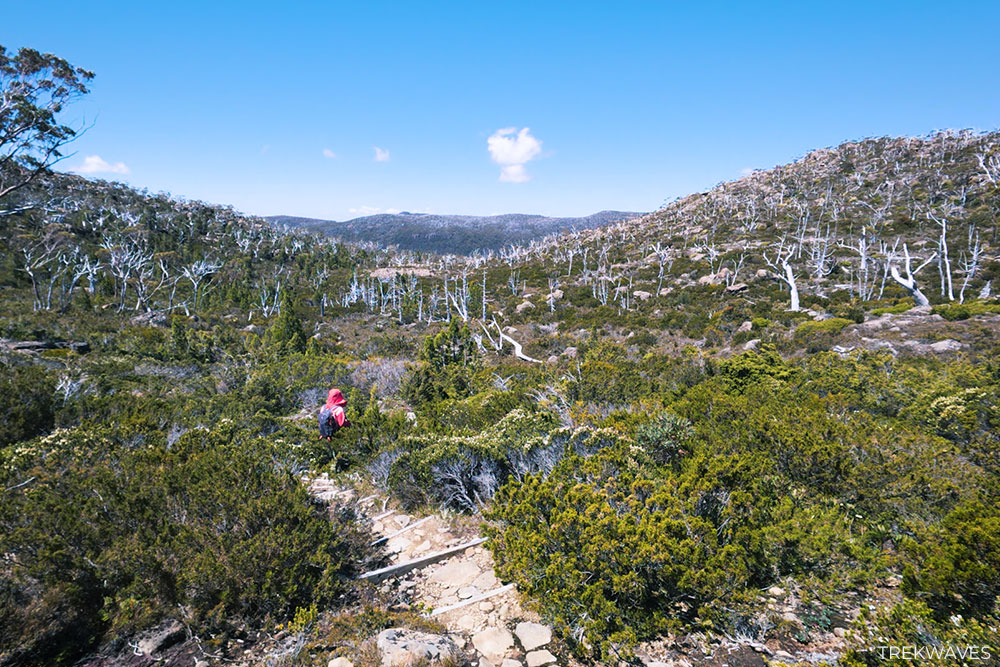
Lake Webster Track
The return journey follows the rugged Lake Webster Track, descending steadily through the remote wilderness of Mount Field National Park.
This section of the trail is rough underfoot—rocky, root-covered, and often muddy—making it one of the more demanding parts of the descent.
It’s a quiet, less-traveled part of the circuit, winding through dense, moss-draped forest while skimming past Lake Webster—though there’s no access to the water.
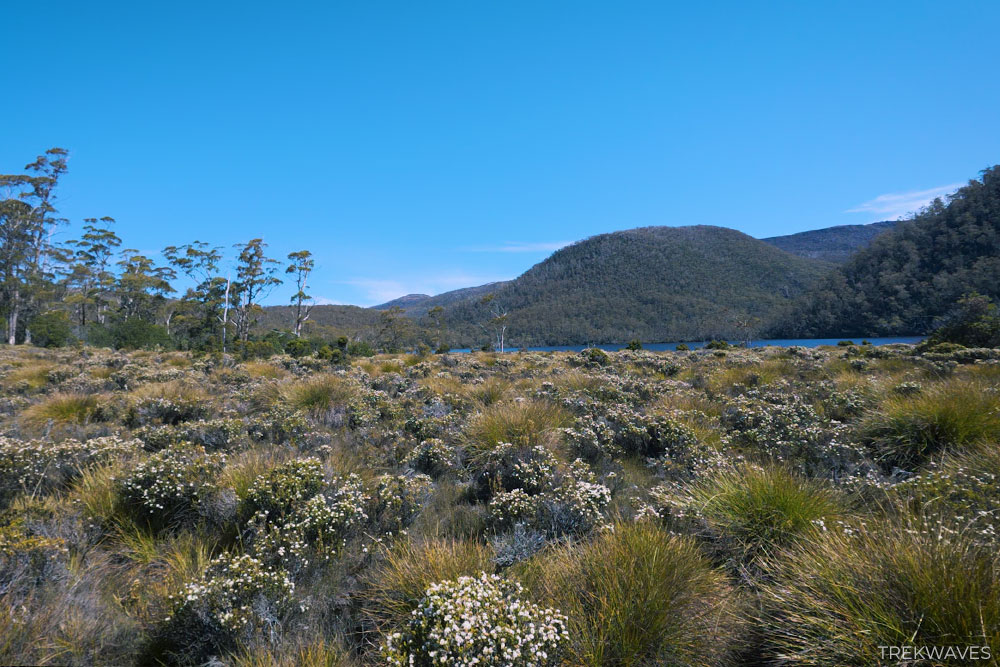
Just before reaching the final section of the loop, there’s an option to take a short 20-minute return detour to Lake Seal.
The side track is notoriously muddy, but those who take it will find a tiny beach—a rare and refreshing swimming spot for those keen on a quick dip.
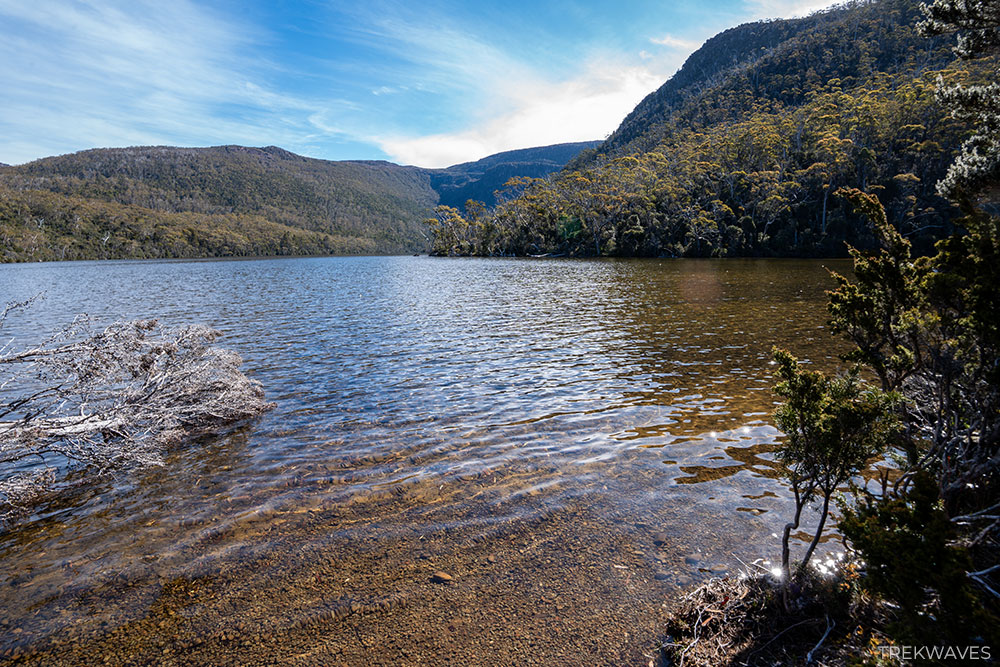
For those with extra time and energy, there’s also an option to take a 40-minute return side trail to Platypus Tarn.
Unfortunately, we didn’t have time to explore it, as the day was getting late and the continuous descent in the second half of the hike had started to take its toll on our legs.
Return via Pandani Grove
Approaching the final stretch, the trail links back to the Pandani Grove Nature Walk, where the prehistoric-looking pandanis stand tall, offering a striking farewell to the hike.
Before wrapping up the hike, you’ll also pass Eagle Tarn—a small but picturesque alpine lake tucked away in the landscape.
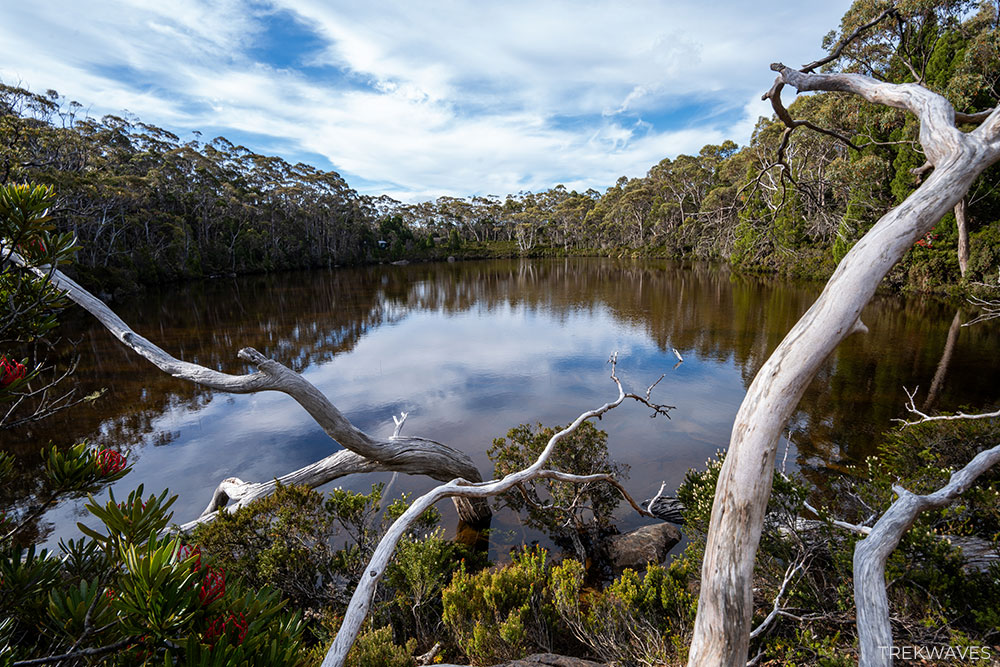
Reaching the trailhead again brings a sense of accomplishment, marking the end of what is undoubtedly one of Mount Field’s most breathtaking alpine hikes.
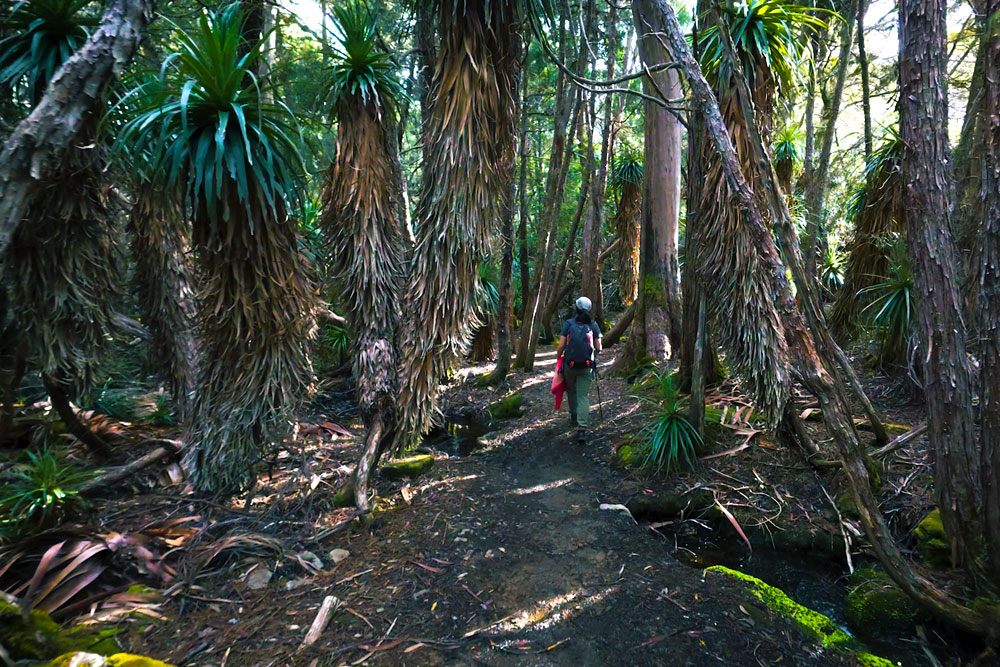
Final Thoughts
Looking back, this was undoubtedly one of the best day hikes of our Tasmania trip. We couldn’t have asked for better weather, with clear skies showcasing the region’s breathtaking alpine scenery.
If I had the chance to redo it, I’d likely choose a return hike instead of the full circuit. The Lake Webster Track section wasn’t particularly scenic, and the unrelenting descent along a narrow, wet, and rocky trail made for a less enjoyable finish.
I’d probably hike to Twilight Tarn Hut and then turn back the way I came.
That said, if you’re determined to complete the loop, I’d suggest doing it counter-clockwise. Many reviews on AllTrails recommend this direction, and having now done it myself, I’d have to agree.
All in all, an incredible alpine hike—easily one of the best in Tassie!
Found It Helpful? Pin It for Later!
